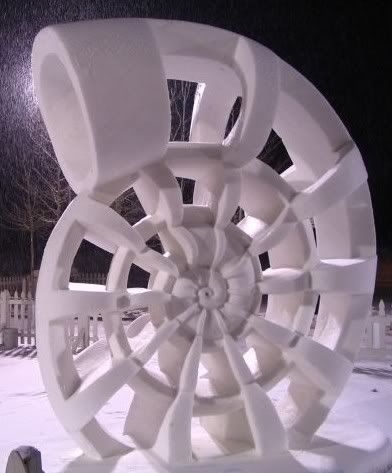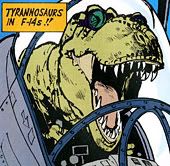Post by Magill on Nov 29, 2005 15:22:57 GMT -5
I've been on a kick where I want to read some nonfiction, so I'm looking for recommendations. I'll also give a few of my favorites. I really like science books, but I'd be interested in just about anything.
My all-time favorite science writing is The Neandertal Enigma: Solving the Mystery of Modern Human Origins. Although it's slightly outdated and doesn't come to a very satisfying conclusion of whether Neandertals were ancestors of current humans (later genetic studies have shown that they probably were not), it's got some of the best science writing I've read. He uses great analogies and descriptions. You go on a trip from a French cafe to digs in the Middle East and South Africa to a grad student who practices stone knapping on the grounds of Harvard to learning about technologies that appeared millenia before its time. It's a fascinating look at what makes us who we are and when we started acting like humans.
Given the increasing numbers of married individuals on this board, I thought I would recommend Marriage, a History: From Obedience to Intimacy, or How Love Conquered Marriage by Stephanie Coontz. I know I mentioned this author in our thread about gay marriage a while back, but I hadn't read any of her books yet. Although it prompted a lot of strange looks and people expectantly examining my left hand when I read it at work, I found it incredibly interesting. She gives a brief overview of what marriage is in different cultures (including a fascinating bit about a culture in China that is the only known group without anything like marriage) and different times. I especially enjoyed reading about marriage in medieval times. The main thesis of her book is that marrying for love, which really started happening in the 17th and 18th centuries, caused a fundamental shift in how the institution of marriage. As someone who considers herself rather liberal, I didn't think the book was catering to me. Early on, she mentions that people who favor expanding marriage to other groups should be careful about using past societies as precedent, as those societies often did other things that would not be acceptable.
I haven't read it yet, but my boyfriend recently read The Travels of a T-Shirt in the Global Economy : An Economist Examines the Markets, Power, and Politics of World Trade by Pietra Rivoli and had nothing but praise for it. As you might guess, the author follows the journey of a t-shirt, from the cotton it's made out of, to textile making, to what happens to old t-shirts after they're donated to Goodwill or similar charities. Evidently there's quite a bit of finagling that goes on to get around trade quotas and other restrictions.
Now it's your turn (I feel like I'm on Reading Rainbow or something).
My all-time favorite science writing is The Neandertal Enigma: Solving the Mystery of Modern Human Origins. Although it's slightly outdated and doesn't come to a very satisfying conclusion of whether Neandertals were ancestors of current humans (later genetic studies have shown that they probably were not), it's got some of the best science writing I've read. He uses great analogies and descriptions. You go on a trip from a French cafe to digs in the Middle East and South Africa to a grad student who practices stone knapping on the grounds of Harvard to learning about technologies that appeared millenia before its time. It's a fascinating look at what makes us who we are and when we started acting like humans.
Given the increasing numbers of married individuals on this board, I thought I would recommend Marriage, a History: From Obedience to Intimacy, or How Love Conquered Marriage by Stephanie Coontz. I know I mentioned this author in our thread about gay marriage a while back, but I hadn't read any of her books yet. Although it prompted a lot of strange looks and people expectantly examining my left hand when I read it at work, I found it incredibly interesting. She gives a brief overview of what marriage is in different cultures (including a fascinating bit about a culture in China that is the only known group without anything like marriage) and different times. I especially enjoyed reading about marriage in medieval times. The main thesis of her book is that marrying for love, which really started happening in the 17th and 18th centuries, caused a fundamental shift in how the institution of marriage. As someone who considers herself rather liberal, I didn't think the book was catering to me. Early on, she mentions that people who favor expanding marriage to other groups should be careful about using past societies as precedent, as those societies often did other things that would not be acceptable.
I haven't read it yet, but my boyfriend recently read The Travels of a T-Shirt in the Global Economy : An Economist Examines the Markets, Power, and Politics of World Trade by Pietra Rivoli and had nothing but praise for it. As you might guess, the author follows the journey of a t-shirt, from the cotton it's made out of, to textile making, to what happens to old t-shirts after they're donated to Goodwill or similar charities. Evidently there's quite a bit of finagling that goes on to get around trade quotas and other restrictions.
Now it's your turn (I feel like I'm on Reading Rainbow or something).











